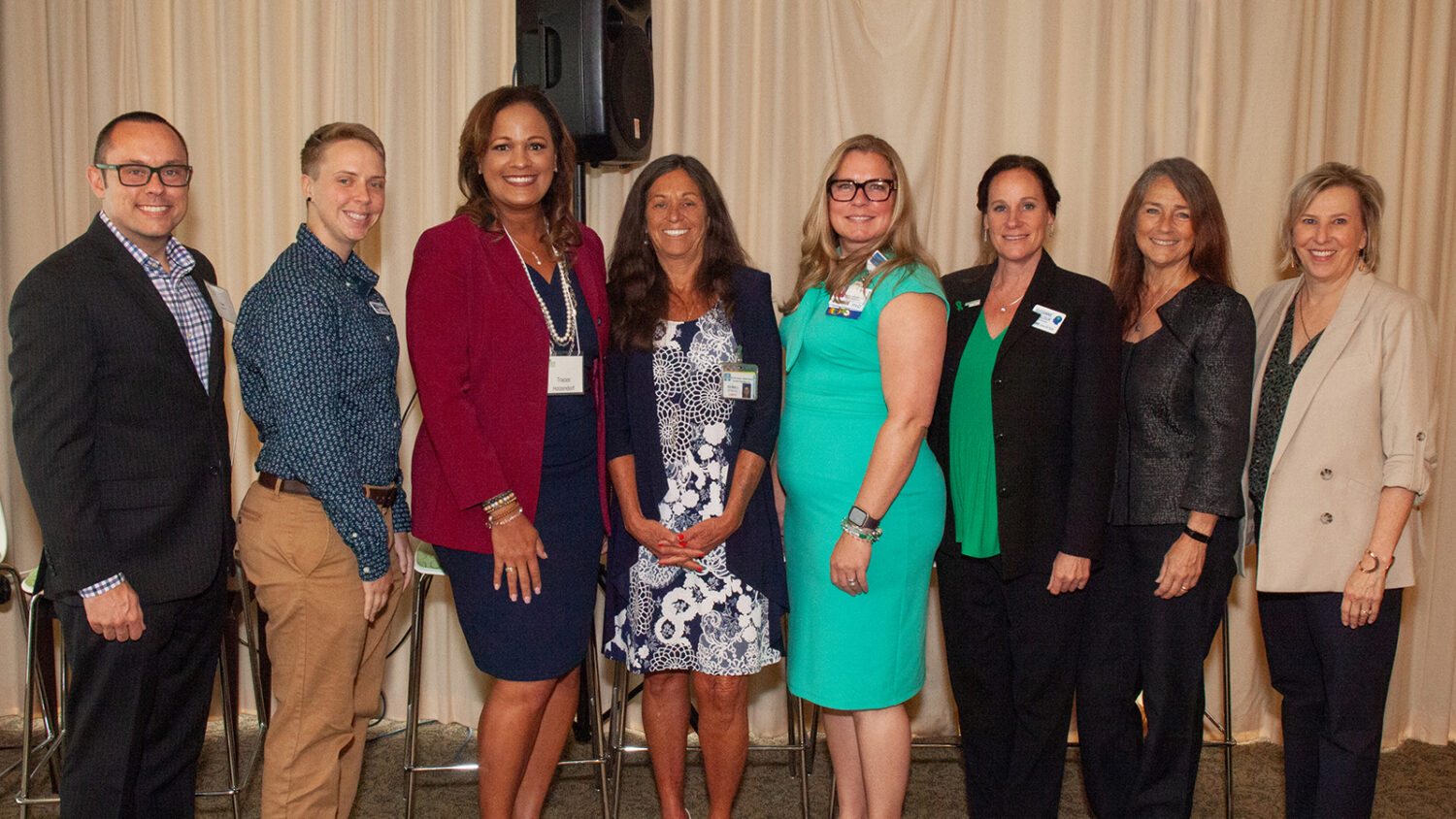On May 11, 2023, The Community Foundation for Northeast Florida hosted a Donors Forum, Responding to the Mental Health Crisis in Duval County, to educate grantmakers about mental health issues on the First Coast and explain the process for the region’s 9-8-8 Crisis Response System. The program opened with remarks by Foundation Vice-President Tom Caron. Then, Terrie Andrews, Vice-President of Behavioral Health and Director of Clinical Training at Baptist Health Systems, provided an overview of the region’s mental health situation. The overview was followed by short presentations from several important regional agencies and organizations who deal with mental health. The program concluded with a question-and-answer session with the panel of speakers, moderated by Amy Crane, Senior Director of Grantmaking for TCF.
Speakers included:
- Terri Andrews, Vice-President of Behavioral Health and Director of Clinical Training at Baptist Health Systems
- Elizabeth Findley, LCSW, Crisis & 988 Director, United Way of Northeast Florida
- Debbie O’Neal, LMHC, Vice President of Community Support Services, Mental Health Resource Center
- Theresa Rulien, PhD, LMHC, LMFT, President/CEO, Child Guidance Center
- Tracee Holzendorf, MSN, RN, Executive Director, Here Tomorrow
- Suzanne Mailloux, J.D., Executive Director, National Alliance on Mental Illness (NAMI) Jacksonville
Overview
- Post-COVID, nearly one in three adults suffers from a mental health crisis – the precursors of which are often isolation and loneliness. Substance abuse is out of control.
- National forecasts project that within the next five years, outpatient behavioral service needs will increase by nearly 20 percent – and will increase by nearly 25 percent within 10 years.
- There needs to be a significant increase in regional outpatient resources in order to avoid patients ending up in emergency departments and inpatient centers.
- There is a similar situation in pediatrics, with increasingly urgent needs for outpatient services
9-8-8 Crisis Response System
- The 9-8-8 Crisis Response System – for mental health, substance use, and suicidal crises – launched in June 2022 in our area. It is part of the National Suicide Prevention Lifeline Network of more than 200 local crisis call centers. Just last month, it had more than 1,800 calls.
- The rollout took tremendous planning and coordination between many agencies and organizations.
- When a caller rings 988, they will receive support within 20 seconds. If the regional team is not available, the call is routed to a national hotline.
- There are nine dedicated call takers, and the phone is always answered by a trained crisis specialist.
- There are a number of processes for a call, depending on the severity of the crisis and the nature of the call.
- If possible, the call team de-escalates the situation by talking it through with the caller, creating a safety plan, and mobilizing community resources for help and follow-up.
- If there is an active threat of suicide, there is an offer to come meet the caller. The crisis is then transferred to a local mobile response team. The hope is to keep law enforcement out of the situation.
- If a caller is simply lonely or isolated, peer support is recommended and arranged.
- If the situation is potentially lethal, the team works to keep the caller safe while on the call. If needed, 911 is called and a response unit is sent, with a mental health team member included to assist
Co-Response Unit
- Traditionally, many mental situations were handled through 911, which turned them into a law enforcement issue. The 988 hotline provides an opportunity to intervene before that.
- Duval County has piloted a 911/Co-Response Unit that partners with law enforcement. There are currently six clinicians who ride side by side with offices and respond to mental health calls. The purpose of the mental health co-response is to deescalate the situation and avoid arrest or involuntary admittance to an inpatient psychiatric unit.
- There were 13,000 of these types of calls in a six-month period. With the co-response unit involvement, there was a 77 percent diversion rate with no arrest or hospitalization.
- The co-response team works to arrange outpatient treatment and provide linkages to ongoing services. A case manager component can be added if additional services are needed, such as transportation, insurance needs, etc.
Mobile Response Team
- The Child Guidance Center created a mobile response team years ago to try to reduce the number of children who were being Baker acted (involuntarily taken to an inpatient facility for evaluation).
- The addition of 988 is helping bridge the gap in initial evaluations, and there is funding in the works to expand the mobile response team to the adult population.
- The majority of the time, a pediatric situation requires an on-site response to do a full mental health assessment, which includes their environment. The patient is then connected to appropriate follow-up, whether that be individual therapy, group therapy, additional services, etc.
- Approximately 80 percent of the children helped have had their situations diverted from involuntary hospitalization.
- Connection and re-connection are the keys during this type of response. A “warm handoff” is an important part of any transition during care.
Peer Support Response
- Here Tomorrow and NAMI Jacksonville are two of the agencies who provide peer response and follow-up for 988 callers.
- Here Tomorrow has a 360-day Certified Peer Recovery program that includes one-on-one peer support or a counseling referral. The program has a 98 percent retention rate of its “friends” (the name for patients) completing the program.
- There are currently 1,200 friends enrolled in the program – a 50 percent increase over last year.
- NAMI Jacksonville provides personalized ongoing support for those in recovery and their families. They receive referrals from the 988 hotline and partner to provide services such as family-to-family and peer-to-peer classes.
Advocacy
- It is vitally important to destigmatize and talk openly about mental health issues in order to provide the attention and services that are needed. The NEFL Mental Health Advocacy Coalition, a new offshoot of the Florida coalition, hopes to determine what will make a difference in the community and how to impact legislators to help.
- Here Tomorrow is looking at adding pop-up spaces staffed with peers to be able to have early conversations and discussions about mental health, where it isn’t necessarily ever discussed.
- Most of the programs/services that have been discussed are funded through a variety of grants and federal/state/local dollars and are free to patients. However, they are often understaffed, underfunded, and rely on outside support keep up with increasing mental health demands. Several programs may expire this year without a dedicated source of funding. Donations are needed.
- The Jacksonville Sheriff’s Office has praised the co-response efforts, values the partnership, and is supportive of the expansion of the program, which is very hopeful and important.
- There are a lot of new callers to the 988 hotline of all ages, which is encouraging, as it means that it is working and reaching more people all the time. Publicity efforts are ongoing to get the word out about 988, including flyers, putting information on the back of school IDs, and most importantly, word of mouth.
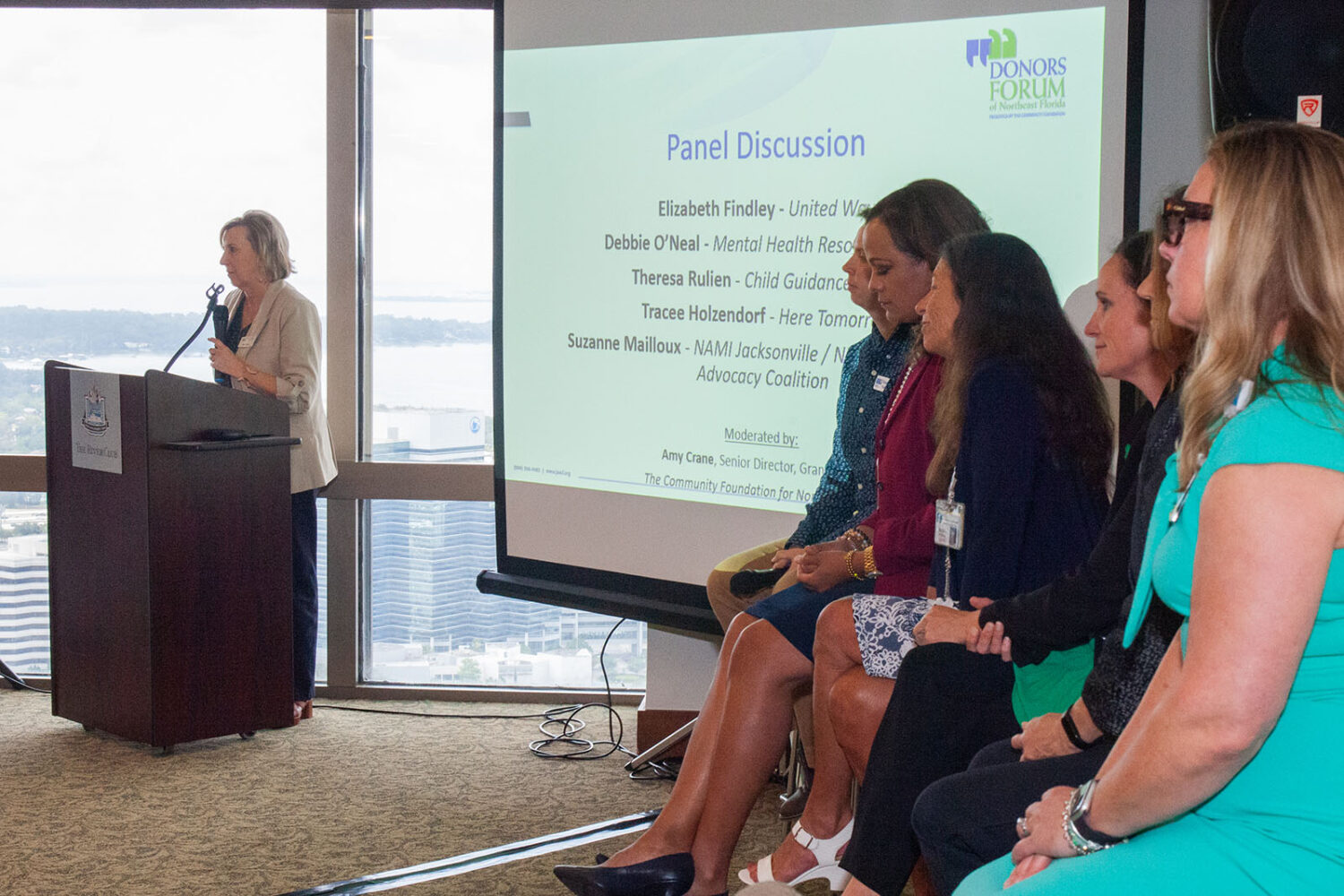
Explore More Topics from Donors Forum
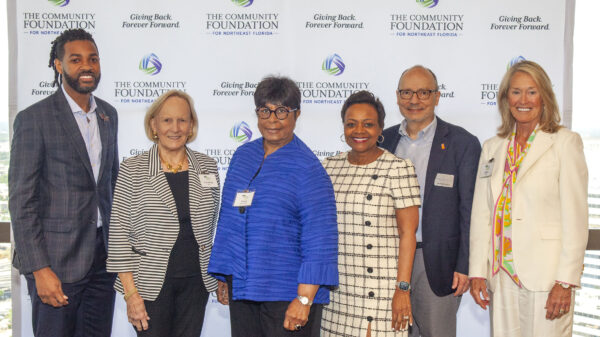
The Impact of Collective Giving
On April 17, 2025, The Community Foundation for Northeast Florida hosted a Donors Forum at the River Club to discuss The Impact of Collective Giving. The featured speaker was Michael Layton, Philanthropy Chair at the Dorothy A. Johnson Center for Philanthropy.
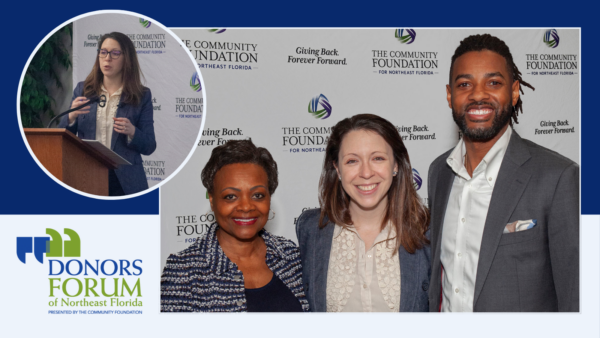
Trends in Philanthropy
On March 25, 2025, The Community Foundation for Northeast Florida hosted a Donors Forum at the UNF Adam H. Herbert University Center to discuss Trends in Philanthropy. The featured speaker was Tory Martin, Director of Communications and Strategic Partnerships for the Dorothy A. Johnson Center for Philanthropy, which just released its report 11 Trends in Philanthropy for 2025.
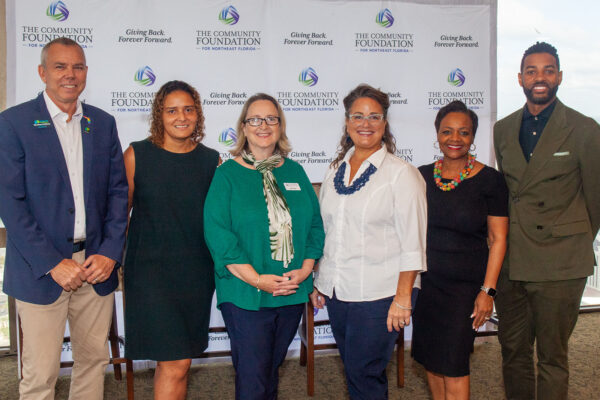
The State of LGBTQ Philanthropy
On October 23, 2024, The Community Foundation for Northeast Florida hosted a Donors Forum to discuss the State of LGBTQ Philanthropy.
